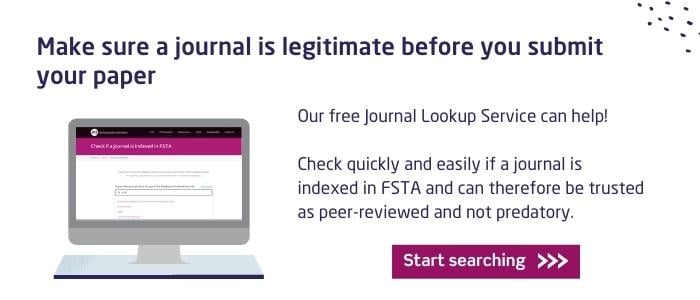

Written by Nicole Webber, Assistant Professor of University Libraries, and Stephanie Wiegand, Associate Professor of University Libraries, University of Northern Colorado, USA, for IFIS Publishing
While distressing in the world of academia and research, predatory publishing tactics do not contribute significant novelty to the worlds of scholarship or fraud. Granted, new technologies, financial models, and a multitude of vendor products have made publication—particularly journal publication—more complex.
Yet today’s environment is simply a continuation of a history of exploitation and abuse in scholarly production. The more sustainable reactions to fraudulent practices are those in which the scholar is continuously aware of the publishing landscape in order to make informed decisions about their own scholarship and more accurately assess the scholarship of others. Our current research investigates the state of this particular response by exploring faculty knowledge and attitudes of deceitful journal operations commonly referred to as “predatory journals”.
 The difficulty in studying this phenomenon arises from the lack of consensus on just what a “predatory journal” is. Intention, impact, monetary gain, quality, status, and reputation are all factors that influence how one might categorize a publication on a continuum of practices that range from the most reputable to the least respected. As journals exist on this spectrum, it is often not an obvious judgement for faculty determining where to publish—nor is it a simple task to ask faculty how they arrive at this judgement.
The difficulty in studying this phenomenon arises from the lack of consensus on just what a “predatory journal” is. Intention, impact, monetary gain, quality, status, and reputation are all factors that influence how one might categorize a publication on a continuum of practices that range from the most reputable to the least respected. As journals exist on this spectrum, it is often not an obvious judgement for faculty determining where to publish—nor is it a simple task to ask faculty how they arrive at this judgement.
For this reason, we began our study with semi-structured interviews of 19 faculty members at the University of Northern Colorado, with the eventual goal of using this data to construct a survey that is more broadly applicable to faculty across the United States. We asked participants about both the non-predatory aspects of their publication process (such as how they determine journal quality and where to submit scholarship) and the predatory-specific aspects (such as the terms, tools, and actions related to predatory publishing). A thematic analysis was conducted, and the results were presented at the 2019 conference of the Association of College and Research Libraries.
Our research indicated that a majority of faculty have at least a cursory knowledge of fraudulent journal practices, but few have a sophisticated level of knowledge. Further analysis highlighted factors that may indicate how a faculty member gains or applies their knowledge of predatory journals, including their discipline, department culture, education, and mentoring. These themes provided the basis for the terminology and overall trajectory used in our institution-wide survey of faculty. The conference proceeding reporting the details of these results is available through the University of Northern Colorado institutional repository.
While the conclusions from this qualitative phase mainly provided direction for our survey instrument, they also suggested that more targeted and intentional work is necessary to equip scholars with the knowledge they need to successfully navigate modern scholarly publishing. Luckily, anecdotes, email spam, and journal editorials are alerting faculty to the issue. Yet, if common knowledge can lend any insights into the current situation, it’s that scams capitalize on the busy and the stressed as well as the ignorant. More robust awareness regarding predatory practices is essential to anticipating the possibilities and understanding the ramifications that scholars may stumble—or willingly venture—into when at their most vulnerable.
Speaking of predatory publishing, did you know that we thoroughly assess journals for quality and relevance to ensure that no predatory journals are indexed in the FSTA database? Find out more

-1.jpg)

